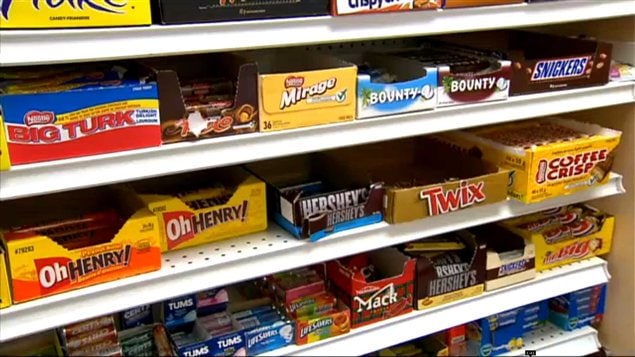Canadians love chocolate. On average, we eat about five and half kilos of chocolate per person per year. And we’re paying for it. In fact, it seems we’ve been paying too much.
In 2007, an insider in the chocolate business blew the whistle on industry price-fixing to Canada’s Competition Bureau which then began an investigation.
The bureau found out about the alleged scheme through its immunity program, under which the first party to disclose an offence or provide evidence may receive immunity, provided it fully co-operates.
As a result of that investigation, the agency has laid criminal charges against two food industry giants and a major food distributor in Canada.
Nestle, Mars, and a company called ITWAL, and their respective top executives have been charged with conspiracy under Canada’s Competition Act. ITWAL is a national network of independent wholesale distributors.
A fourth major chocolate company, Hershey Canada was also involved but has cooperated with the investigation and agreed to plead guilty at a hearing on June 21 in exchange for leniency. Because of this the Competition Bureau has recommended to prosecutors that the company receive lenient treatment.
In its statement Hershey expressed regret for its actions and blamed workers who had already left the company
The alleged price fixing for chocolate bars took place from 2002 to 2008 and involved such popular brands as Kit-Kat, Coffee Crisp, Aero, Twix, Snickers, Bounty, and M&Ms.
Reports say the three executives charged are Robert Leonidas, former President of Nestle Canada; Sandra Martinez, former President of Confectionery for Nestlé Canada; and David Glenn Stevens, President and CEO of ITWAL.
The current legislation allows for fines up to $25 million and/or prison terms up to 14 years. However, as the conduct occurred under the former provisions, the accused face potential fines of $10 million and/or prison terms of up to 5 years.
Both Mars and Nestle say they intend to “vigorously defend” themselves against the allegations. Nestle Canada said on its website that it operates “with the highest ethical business standards.”
Earlier this year, Nestle was fined, along with 10 other chocolate and confectionery companies, a total of 60 million euros ($83 million) for similar chocolate price-fixing in Germany. Nestle alone was fined 20 million Euros for fixing prices on sweets, hot drinks, deep frozen pizza, and instant capucinno products
The Agence France Presse reported that a Mars subsidiary avoided penalties by cooperating with German authorities.







For reasons beyond our control, and for an undetermined period of time, our comment section is now closed. However, our social networks remain open to your contributions.